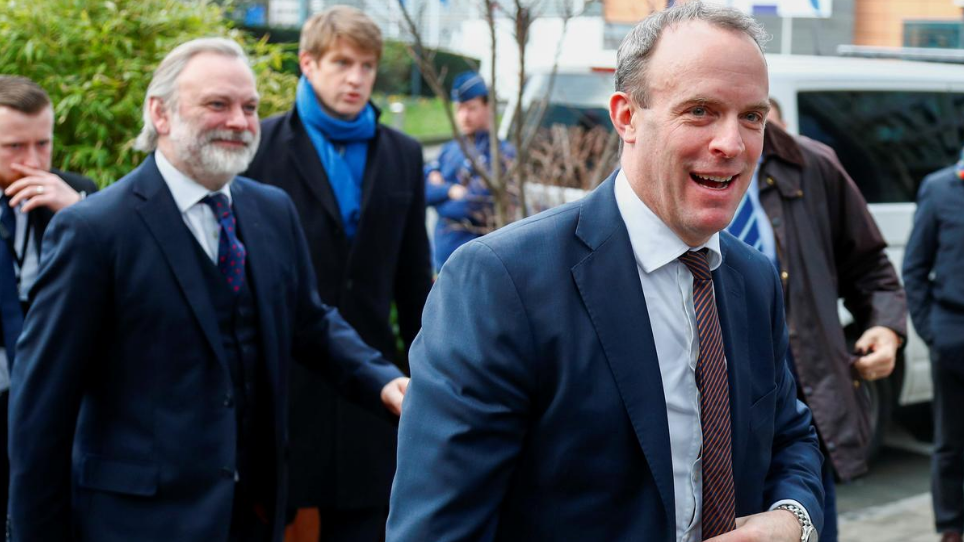
Britain's Foreign Secretary Dominic Raab arrives for a meeting with foreign ministers of France, Germany and Italy to discuss the Libyan crisis in Brussels, Belgium, January 7, 2020. /Reuters Photo
Britain's Foreign Secretary Dominic Raab arrives for a meeting with foreign ministers of France, Germany and Italy to discuss the Libyan crisis in Brussels, Belgium, January 7, 2020. /Reuters Photo
The European Union's top diplomat and the foreign ministers of Britain, France, Germany and Italy on Tuesday condemned Turkey's plans to send military experts and trainers to Libya, saying foreign interference was exacerbating instability.
After postponing a trip to Tripoli over safety concerns, the ministers and EU foreign policy chief Josep Borrell held talks in Brussels to call for a ceasefire as Libya's internationally recognized government struggled to fend off a military offensive on its power base in the capital.
"Continuing outside interference is fueling the crisis," the ministers and Borrell said in their joint statement released after the meeting.
In remarks to reporters, Borrell said: "It is obvious that this made a reference to the Turkish decision to intervene with their troops in Libya, which is something that we reject."
Turkey will send military experts and technical teams to support Libya's internationally recognized government, Foreign Minister Mevlut Cavusoglu said on Monday, a day after President Recep Tayyip Erdogan said Turkish military units were moving to Tripoli.
Turkey is nominally a candidate to join the EU, though accession talks have long stalled due to disagreements over human rights, Cyprus and other issues.
The EU talks were to have taken place in Libya but the Tripoli government asked for them to be postponed, according to two EU diplomats.
Europe and the United States face being sidelined in Libya by Turkey and Russia, which are taking a bigger role in the conflict there. Libya has been in turmoil since Muammar al-Gaddafi's fall and killing due to an uprising in 2011.
Source(s): Reuters